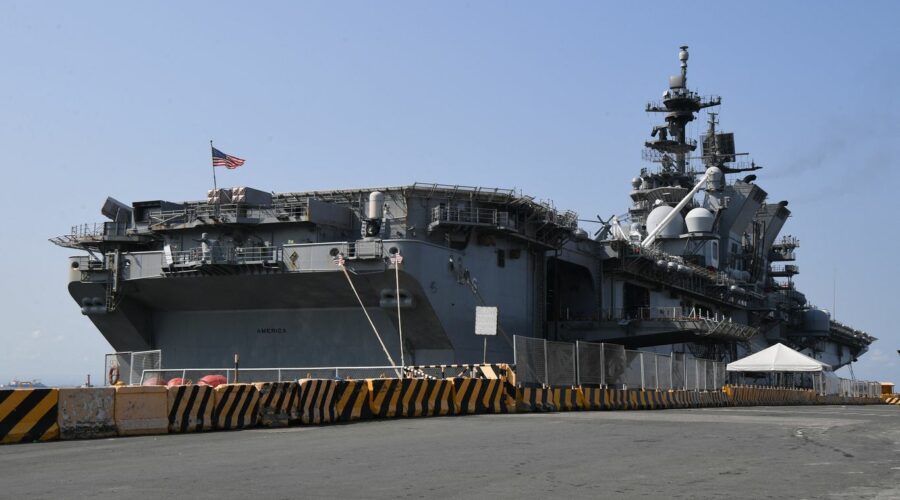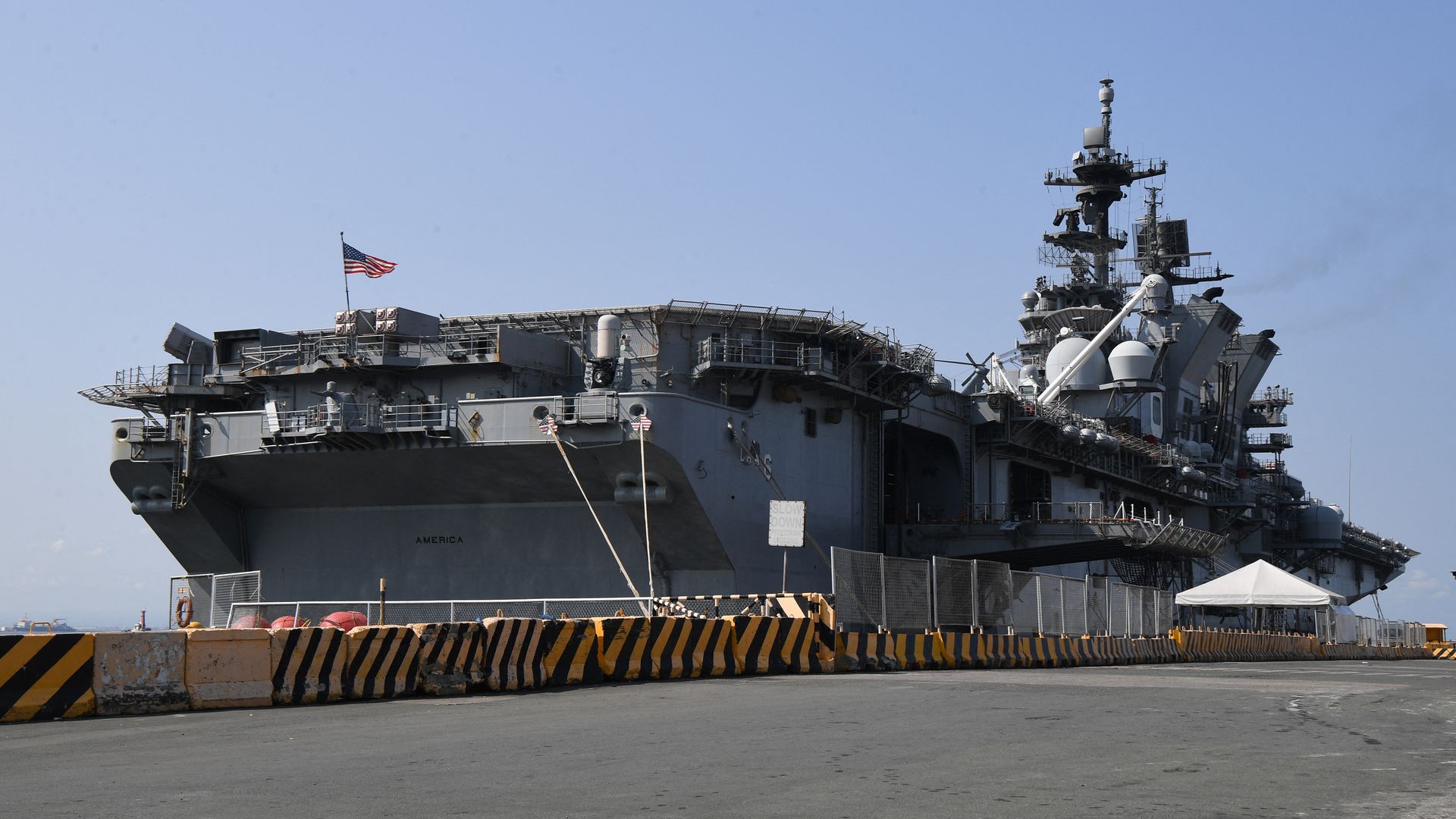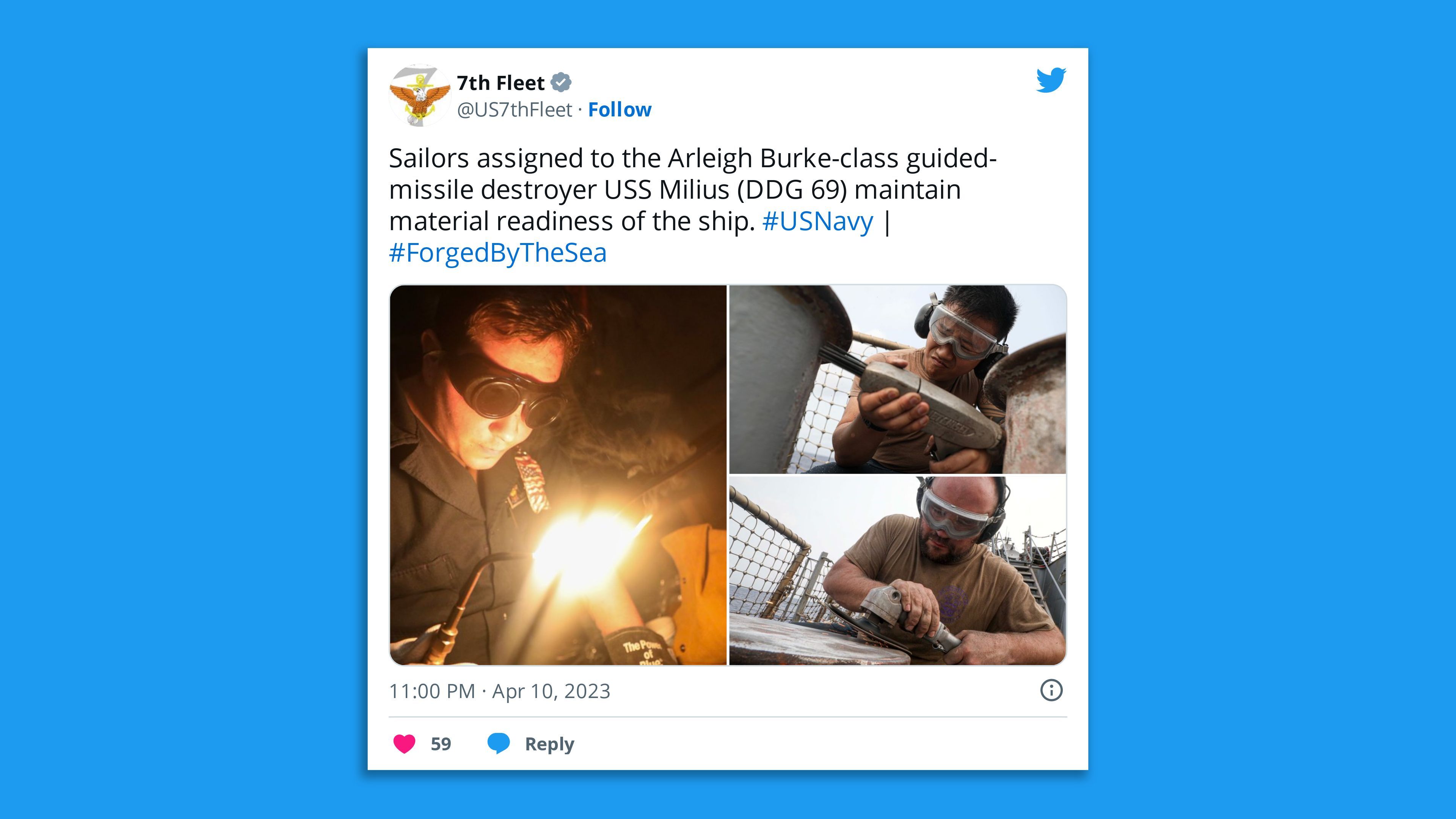U.S., Philippines hold largest-ever drills after Chinese military's Taiwan exercise
A U.S. flag is hoisted on the flight deck of the amphibious assault ship USS America anchored at the international port in Manila on March 21. Photo: Ted Aljibe/AFP via Getty Images
The U.S. and Philippines militaries launched their largest-ever joint exercises on Tuesday, a day after Chinese forces finished drills around Taiwan.
The big picture: More than 17,600 military personnel are taking part in the scheduled annual bilateral exercise that runs through April 28 and will include live-fire drills — twice the number that took part last year, per the U.S. Embassy in Manila.
- The allies' regional show of force and pushback against Beijing's disputed territorial claims of the South China Sea follows the United States boosting its military presence in the Philippines after Manila agreed to give the U.S. access to additional bases.
Of note: As the Chinese military was finishing its drills that saw it deploy warships and military aircraft near Taiwan on Monday, the U.S. 7th Fleet sent the guided-missile destroyer USS Milius through the South China Sea in what it called a "freedom of navigation" operation.
- The ship sailed near the Spratly Islands, where Beijing has built artificial islands despite them lying in the Philippines' exclusive economic zone, per a 7th Fleet statement.
What they're saying: "As long as some countries continue to claim and assert limits on rights that exceed their authority under international law, the United States will continue to defend the rights and freedoms of the sea guaranteed to all," the 7th Fleet said in its statement.
- "No member of the international community should be intimidated or coerced into giving up their rights and freedoms."
Meanwhile, Chinese Foreign Ministry spokesperson Wang Wenbin said at a briefing Monday: "U.S.-Philippines military cooperation must not interfere in South China Sea disputes, still less harm China's territorial sovereignty, maritime rights and interests and security interests."
Source: Read Full Article



